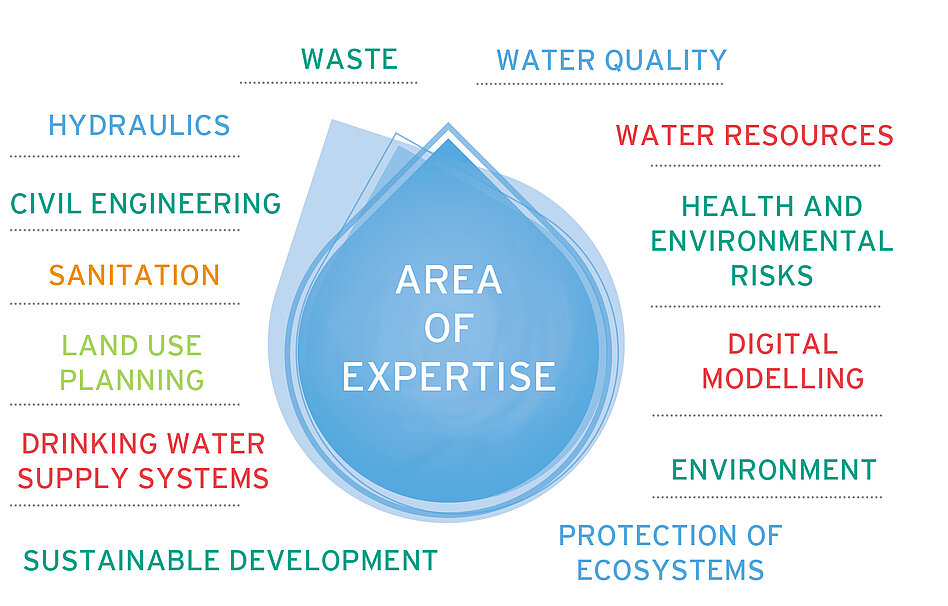Whether within the teaching corpus itself, in the current practice of managing all school activities (sorting, reasoned use of consumables, etc.) or in the results of its finalised research, acting in favour of sustainable development is central to the ENGEES. This is the very vocation of the school. Administrative staff, teachers, students, trainees, everyone is aware of this challenge and is involved in it. The Green Plan is one of the structuring elements that guides us collectively. Together we are setting ever more ambitious objectives. Obtaining the DD&RS label (a sustainable development label for higher education institutions) since 2016 reflects the depth of our commitment.
There is a strong cohesion within the promotions that lasts long after graduation. While the “small” size of the institution is a facilitator, it alone cannot explain the mutual support and strong ties that exist within it. This solidarity extends to the outside world through the involvement of students in developing countries during student association projects (Engineers Without Borders, TR Monde) or during an internship. The ENGEES strives to transmit these civic values and a common ethic of sharing, sustainable and secure access to this indispensable resource that is water. Students in turn transmit these values through public awareness events (A l'eau la terre? Ici Strasbourg!) or to the youngest through educational activities (Natur'Astras association).
In order to best support each young person in his or her educational and professional project, each professional in his or her career path, and each company in its search for skills, the ENGEES is committed to a quality approach. All the staff contribute to this by collecting opinions and by setting up, monitoring and evaluating rigorous procedures to serve and satisfy all its users. The resulting continuous improvement is a real strength for the institution. In December 2015, this approach led to ISO 9001 certification and continues to serve the school's staff and users.
The ENGEES is the only school to deal with the theme of water in its entirety. Its know-how is linked to its research, combining basic sciences, human sciences and applied sciences oriented towards the needs of the economic world. This know-how is also based on teaching anchored in professional contexts and on work in project mode. Finally, at the School of Water Engineering, we carry out and implement. The ENGEES thus enables students to acquire multiple skills in an increasingly complex context. Through its research and advice, the ENGEES can accompany and anticipate the evolution of the sector; it also prepares its trainees so that they are involved in lifelong learning. This is also ENGEES' expertise: learning to learn.
![[Translate to Anglais:] [Translate to Anglais:]](/fileadmin/user_upload/engees/images/entete_web_engees.jpg)
